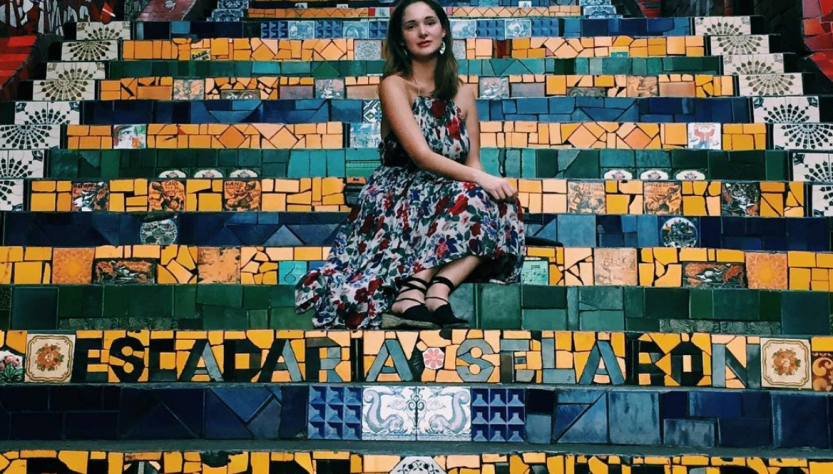Pre-departure:
You have made the bold decision to go to Rio de Janeiro. Parabéns (congrats)! The city has a vibrate ambience, football is a religion and the diversity in people, scenery and activities is splendid. I would go back in a heartbeat, but before you set out on an adventure of a lifetime, take heed. Here are a number of tips and tricks to make this period as pain-free as possible.
Pre-departure tips:
- You need a student visa for Brazil. I highly recommend starting the process well in advance, it can take up to 4 weeks to process, after your application has been submitted. Moreover, it is important to note this application for a student visa to Brazil has two phases, one in your own country and one in Brazil. Once in Brazil you have to register with the federal police within 90 days or you will pay a fine, PUC-Rio will assist you with this. Note that Brazil is a very bureaucratic country, the documentation needed for the second phase of my visa changed twice in the 90 day, so take additional documentation like your original birth certificate etc. with you, just in case, as couriering this at a later stage is costly.
- Download an offline version of Google Translate immediately (this will be your greatest friend on arrival).
- Start with Duolingo today, very few Brazilians speak English, if you have the basics of Portuguese (they don’t speak Spanish!) before your arrival, it will be of great help.
- Rio is a tropical city, you won’t need much winter clothing, expect to be sitting on the beach in June with an água de coco (coconut water) or a caipirinha in hand but be warned, take some warmer clothing and closed shoes as tropical rain showers are bound to occur and walking around campus in your Havaianas in the rain is not fun (trust me).
- There exists a Facebook group called Brother Carioca, I highly suggest joining it, even if you are still in the considering phase of going to Rio on exchange. Here, PUC Rio students organize social gathers for all the gringos (you are a gringo, get use to being called that) and other exchange students post about available accommodation. It’s a nice way of feeling a little less alone before embarking to South America.
- There exists two options for accommodation, either you find a place before your departure or you join the homestay programme. I would caution you to find a place on Airbnb with someone beforehand as you do not know what place nor housemate you committed yourself to for the next 6 months, before it is too late. I made that mistake. I would suggest the homestay programme for the first month, a lot of people move out after this period and find a place to stay with friends. It is better to know the area before settling on accommodation, this will be your safe haven for the next 6 months, make sure it is one where you want to be and do not have to be.
- Safety is a factor to consider in Brazil, like in South Africa. In general, I felt safer in Rio than I do back home, but if you have one of the latest and greatest iPhone’s I would suggest leaving it at home. Brazil has one of the most lucrative black market industries in the world for phones, and especially iPhone. I had two iPhones stolen in my first month and after switching to a Samsung, I was not targeted. Great inequality exists in Brazil, so petty crimes like pick-pocketing exist.
- Be warned that you will be living in the Zona Sul area in Rio, which when looking at online cost converters from Brazil to South Africa, will not give you an accurate view. Rio, and especially the Zona Sul area, is expensive and you need to plan your budget accordingly, especially if you hope to join your friends on their travels.
- I would highly suggest taking all your usual medicines with you, Brazilian over the counter medicine is not as effective as our medicine. Most of my European friends was using my medical supply. Moreover, take malaria medication with you, it is incredibly difficult to get hold of this in Brazil, you will need this if planning on going to the Amazon.
- If you are a lover of tea, like me, take some of your favourite types with you, the only decent tea available is matcha but it really does not taste like home.
- Take a travelling backpack with you, those with a lot of straps etc. works ideal for travelling, much easier than large suitcases and especially if you plan on travelling higher up in Brazil or backpacking through South America after your exchange semester.
- Take a decent pair of walking shoes with you, you will walk a lot and there are some spectacular hikes organized by PUC Rio’s exchange office.

Experience at the Host University:
The academic programme at PUC-Rio is very good, the lecturers are really good and there are a lot of classes on offer in English! If you are able to speak Portuguese fluent enough you can also take classes in Portuguese! I especially enjoyed my Portuguese language classes. I was level one aka was not able to speak any Portuguese whatsoever and I am now able to speak and understand quite a lot! Some classes were cancelled quite frequently however. Some of the lecturers are more laid back. You have to attend 70% of your lectures for each subject in order to get the credits. They do take attendance often if not every day. The lectures have small number of students in them, and are thus more like a classroom style than a lecture hall style. The university’s online system works really well and all notifications are set to the email address you provide. I would say really efficient.
The CCCI aka the international office at PUC was very helpful and organised some events for the international students. Cocktail parties, a day trip to an old coffee plantation outside Rio which was awesome, and a city tour of Rio de Janeiro! These activities form part of the registration fee you pay so I would say attend all of them! They’re fun and you already paid for them!
Return to Stellenbosch:
Post Exchange Blues is a thing. For some, it sets in after the initial thrill of being home and seeing your loved ones fades away, whilst for others like me, it sets in before you leave, resulting in a whole lot of tears whilst flying over the city that you once called home, shifting from a lived experience to a distant memory. Mentally prepare yourself for this dip. You will be okay. I would recommend on focusing on things that make you, the present version of yourself, happy and accept that you have changed and certain of your interests may have shifted.
On your return, you will realize how much you have changed, or how certain of your perspectives and attitudes have been shaped. Especially, having been the only South African at my exchange university, I really had to grapple with my identity, although truly confident in who I am in the small town of Stellenbosch, I had to question this in Rio and on my return re-define and set the perimeters in myself for myself. Maybe your existential questioning will not be to the extent of mine but I assure you, you will not be the same person as one you were 6 months ago.
It was perfect opportunity for self-exploration. Before leaving for South America, I knew no one. I had a fresh start. Now, I have returned back to Stellenbosch with a group of friends from all over the world.
Personally, I grew up. I had to face a lot of challenges on my own, that safety net that I always had coming from and studying in Stellenbosch was gone. Self-exploration was key and I on my exchange I had to accept that for those 6 months I was not always ‘okay’, there was some good days and some bad days.
Post Rio, prepare for the academic challenge. As mentioned previously, to do well is not that difficult at PUC Rio and you will need to regain motivation to focus on the tasks ahead of you.

